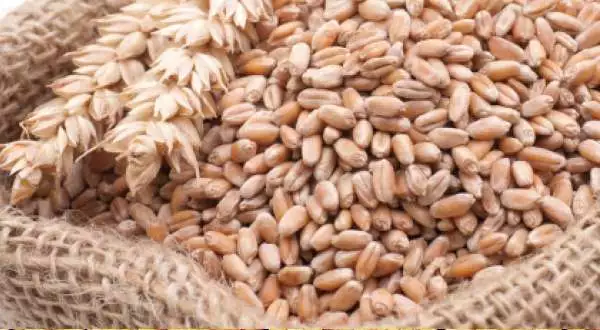The Central Bank of Nigeria, CBN says the country could no longer afford the $2 billion annual wheat importation bill, due to the impact on the nation’s foreign reserves.
According to the United States Department of Agriculture, Nigeria produces less than one per cent of 4.7 million tons of wheat it consumed this year, while the country imported 5.1 million tons of the commodity.
Godwin Emefiele, the apex bank governor, who was represented by the Deputy Governor, Corporate Services, Edward Lamtek Adamu made this known, on Wednesday, in Jos Plateau state.
He said the fact that wheat has become the third widely consumed item in the country, and number three on the country’s importation bill, creating exchange rate imbalance, is very worrisome.
The way out of the problem. The CBN said it’s addressing the problem through the wheat value chain intervention programme captured under the Nigerian Brown Revolution, which is an offshoot of the Anchor Borrowers’ Programme, ABP.
Emefiele said, “Wheat is the third most widely consumed grain in Nigeria after maize and rice. It is estimated that the country only produces about one per cent (63,000 metric tons) of the 5-6 million metric tons of the commodity consumed annually in Nigeria.
“This enormous demand-supply gap is bridged with over $2 billion spent annually on wheat importation. This has made wheat the second highest contributor to the country’s food import bill.”
He warned that the problem must be addressed immediately to reduce pressure on the country’s lean foreign reserves. According to him, “given the high growth rate of the country’s population and the demographic structure, the demand for wheat is projected to continue to rise.
“This can only intensify pressure on the country’s reserves unless we take a decisive step to grow wheat locally.”
Emefiele further stated that the ABP has assisted many farmers across the country to expand their crop production because, “through the programme, N788.035 billion has been disbursed to about four million farmers through 23 Participating Financial Institutions (PFI). So far, 4.796 million hectares of farmlands have been cultivated under the programme covering 21 commodities”.
The nation’s foreign reserves had hovered around $38 billion for the most part of the year due to high import bills and fall in the price of crude oil, the country’s economic mainstay, until last month when it rose to more than $40 billion, the highst in five years after the federal government successfully issued $4 billion Eurobond. In early October, the reserve hit an all time low of $36 billion.
Meanwhile, the Minister of Agriculture, Mohammed Abubakar, has raised concern over the rising wheat consumption and attendant impact on Nigeria’s import bills in recent years, urging stakeholders to invest more in the wheat value chain.
Discover more from The Source
Subscribe to get the latest posts sent to your email.








